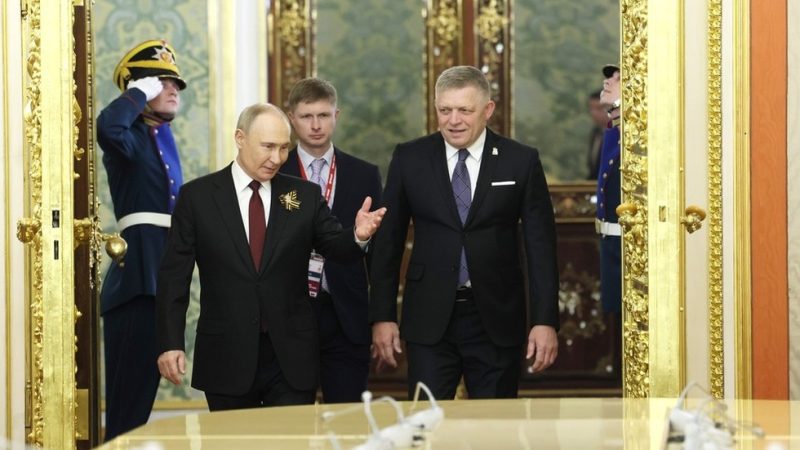
Slovak Prime Minister Robert Fico has once again found himself at the center of a geopolitical storm. His recent visit to Moscow for Victory Day celebrations, a trip undertaken despite significant pressure from Brussels, has sparked intense debate across Europe. Fico was the only EU leader to attend the commemorations, a bold move that highlights the complex relationship between Slovakia and Russia, and the growing divisions within the European Union itself.
The meeting between Fico and Russian President Vladimir Putin naturally dominated the headlines. While details remain scarce, reports suggest the talks covered a range of issues, from energy security to the ongoing conflict in Ukraine. Fico’s decision to engage directly with Putin, even in the face of strong disapproval from many EU partners, underscores a willingness to pursue independent foreign policy initiatives, potentially at odds with the bloc’s broader strategy.
Critics have accused Fico of undermining the EU’s unified stance on Russia, accusing him of appeasement and jeopardizing the collective effort to isolate Moscow. They point to the ongoing war in Ukraine and Russia’s aggressive actions in the region as justification for maintaining a firm and united front against the Kremlin. The optics of a prominent EU leader attending a Victory Day parade in Moscow, a celebration often criticized for its glorification of Soviet history, further fueled this criticism.
However, Fico and his supporters argue that direct dialogue with Russia is necessary to secure Slovakia’s energy interests and broader national security. They emphasize the importance of maintaining a pragmatic approach, prioritizing Slovakia’s specific needs and concerns. This perspective highlights a growing rift within the EU, with some member states feeling increasingly pressured by the bloc’s approach to Russia and seeking alternative channels of engagement.
The long-term consequences of Fico’s Moscow trip remain to be seen. His actions have undoubtedly raised eyebrows across Europe and sparked a crucial debate about the balance between EU solidarity and national interests. Whether this bold move will strengthen Slovakia’s position on the world stage or isolate it further remains a question for the future. The incident serves as a stark reminder of the ongoing tensions and divisions within the European Union regarding its relationship with Russia, a relationship that continues to evolve in unpredictable ways.










